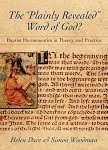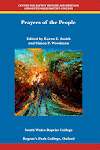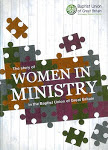Sermon preached at Bloomsbury Central Baptist Church, 26 May 2019
Revelation 8.2–11.18
Listen to the sermon here:
https://soundcloud.com/bloomsbury-1/apocalypse-now-4-heavens-perspective-on-prayer
Listen to the sermon here:
https://soundcloud.com/bloomsbury-1/apocalypse-now-4-heavens-perspective-on-prayer
Do you ever wonder what, on earth, is achieved by praying?
Do you ever
wonder what, if anything, is changed by praying?
Is the
world changed? Is God changed? Am I changed when I pray?
And at a metaphysical level,
what could
possibly be the mechanism
whereby
the world in which a prayer is said
is
a better world than one in which a prayer is not said?
And what about the problem of unanswered prayer,
prayers
that achieve nothing
except
offering us the spiritual equivalent of banging one’s head against a wall?
What on earth, and in heaven’s name, is point of prayer?
These are the questions that are burning in the minds and
souls
of those in
the seven congregations of Asia Minor,
living under the thrall of the Roman Empire in the latter
part of the first century,
struggling
to see how their faithful witness to Jesus,
and their
prayerful worship of him as Lord,
is making
any difference to anything at all.
And these are the questions that John addresses
in these
chapters from Revelation that we’re dealing with today
as we
continue our series looking at this often neglected book
that
lurks at the end of the Bible
waiting to
transform the minds and imaginations
of
anyone brave enough to venture beyond its opening chapters.
In our reading, we heard just a selection of verses,
but as
always I’d encourage you to take the time
to sit and
read these chapters through in their entirety.
You may remember from our readings from Revelation a couple
of weeks ago
that John
has just described the opening of the seven seals on the little scroll;
and that each time a seal was cracked open,
we got a
glimpse of the judgment of God on the forces of empire and evil
that
dominate the earth and deceive people into believing
that
the empire and it’s emperor are gods to be worshipped.
After six seals worth of action, noise, violence, and
destruction,
at the
opening of the seventh seal we get, unexpectedly,
what feels
like a moment of prayer.
There is suddenly silence in heaven for about half an hour.
Everything
stops.
Then John sees an angel burning an incense offering on the
heavenly altar (8.3–4).
And it
becomes clear that the vision is taking its readers
into a
scene of worship, as a burnt offering is given to God.
Earlier in the Apocalypse, before the opening of the seals,
You may
remember that John has already seen
the
four living creatures and the twenty-four elders
each
holding a harp and a bowl;
And we
discovered in chapter five that the bowls contained
the
incense of ‘the prayers of the saints’ (5.8).
It is this incense that is once again in view after the
opening of the seventh seal,
when it is
presented as a burnt offering on the altar before God.
The fire of this burning incense is then thrown to the earth
in
preparation for the sounding of the seven trumpets (8.5).
The Old Testament background for this image is found in
Ezek. 9.4–10.2,
where a
heavenly being throws burning coals from heaven to the earth,
after
marking the faithful on their foreheads (cf. 7.3).
And there is a further parallel between this story
and that of
Elijah and the prophets of Baal at Mount Carmel
(1 Kings 18.20–40).
Elijah asks God for a sign to demonstrate to the people of Israel
that the Lord
is the true god,
and the Lord
accordingly sends fire from heaven.
This demonstration of divine power then triggers the
judgement
on the idolatrous
prophets of Baal.
John reworks these images of divine judgement on evil
to help
those in his churches
understand the importance of their steadfast witness
in the
midst of difficulty and tribulation.
The fire from heaven that John sees in Revelation
is sent as
a result of the prayers of the faithful,
and it
reveals the reality of God’s rule.
The effect of this, for those receiving the text of his
vision,
is to
motivate and encourage them in their praying.
The heavenly perspective is
that it is
the prayer and worship of the saints
that precedes the breaking of the seals,
triggering
the judgements on evil symbolized
by the
events of the sounding of the seven trumpets.
The seven trumpets and the events that they trigger
are images
designed to demonstrate
the
effectiveness of the prayers of the faithful,
especially in terms of divine judgement on evil.
The smoke of the prayers rises before the throne (8.4)
and is then
hurled back to the earth with dramatic effect (8.5, 7).
We passed over the details of the seven trumpet blasts in
our reading,
but the
horrific events described in this series are problematic to many readers.
How can it be, one might ask,
that the
result of prayer
should be
the destruction of one third of the world?
What view of God is implied in such acts of vengeance and
ruination?
In his poetical commentary on the book of Revelation,
D.H.
Lawrence articulates a characteristically negative reaction:
What
we realize when we have read the precious book a few times is that John the
Divine had on the face of it a grandiose scheme for wiping out and annihilating
everybody who wasn’t of the elect, the chosen people, in short, and of climbing
up himself right on to the throne of God.
Revelation,
be it said once and for all, is the revelation of the undying will-to-power in
man, and its sanctification, its final triumph. If you have to suffer
martyrdom, and if all the universe has to be destroyed in the process, still,
still, still, O Christian, you shall reign as a king and set your foot on the
necks of the old bosses! This is the message of Revelation.
Interpreted in this way, Revelation becomes an imperialist
text.
It reflects
a desire to conquer the earth, to subjugate enemies,
to
dominate the cosmic order.
The apocalyptic hope, by this reading, becomes a yearning
for power.
The kingdom
of heaven becomes victor over the kingdoms of the earth.
Babylon gives way to the
new Jerusalem,
and
the saints rule for a thousand years.
Revelation
becomes, in short, a manifesto for Christendom.
In the same way, it supports the approach taken by many
Christians in our world
who
identify Christianity with a drive for control or a desire for vindication.
However, this is not the only way of reading John’s imagery
here.
I’ve said before that the starting point for any
interpretation of Revelation
needs to be
the meaning it would have had for its original recipients.
Although the Apocalypse clearly has its origins in a context
of empire,
it is far
from certain that the vision it presents
is one
where a Christian empire simply replaces the satanic one.
This is not a vision of revolution,
although
such a claim has been made countless times in the intervening millennia.
Rather, John pictures two kingdoms existing alongside each
other,
with the
kingdom of heaven offering an alternative vision of humanity,
a
different way of living in relation to the world and the divine.
To this end, he exhorts his audience to transfer their
citizenship
from Babylon to the new
Jerusalem (cf. 18.4),
and it is in this context that the series of
trumpet-judgements on the satanic empire
need to be
heard.
The reason the saints are praying
for an end
to the influence of the Empire on the earth
is not so
they can assume control in its place;
it is so that humanity can be freed from the idolatrous
deception
which leads
to oppression by, and enslavement to, the beast of evil empire.
The images of judgement therefore need to be heard
not from a
perspective of imperial conquest,
with one empire overthrowing another
and
torturing the subjugated citizens in the process.
Rather, they need to be seen
from the
perspective of the oppressed and the enslaved.
Like Moses and the Israelites living in slavery in Egypt,
desperate
to see release from the oppressive power that held them captive,
John wants to lead the people of God from slavery into
freedom.
The judgements on the evil empire therefore ultimately
concern release,
both for
the people of God and for humanity as a whole,
and they are unleashed in response to the prayerful appeals
of the faithful
that
freedom and justice might come upon the earth.
The imagery of destruction as it is described against both humans
and the created order,
becomes
particularly ethically problematic
if
the book is read as an attempt to describe actual events
that
are occurring or will occur on the earth.
However, if this imagery is read as a metaphor
for the
destructive effects of human idolatry,
for the
events which follow the allying of people with the beast,
then it becomes instead a fitting image
for the way
in which evil sows the seeds of its own destruction
and
ultimately reaps the destructive harvest of its own making (cf. 14.18–20).
The harsh reality of human allegiance to the satanic empire
is war,
death, and destruction,
and John’s
imagery vividly portrays these effects.
What is significant in John’s scheme
is that
this destruction is not all-encompassing.
There is still hope that people will turn and repent
in response
to the judgements (9.20–1).
So the prayers of the people of God for an end to the evil
empire
assume a
tenor, not of vengeance, but of hope for deliverance.
The first four trumpets function together as a set,
much as the
first four seal openings form a group (6.1–8).
The events that follow the first four trumpets
echo events
from the Exodus story, as this table illustrates:
Exodus Event
|
Trumpet
Plague
|
Hail
(7th plague; Ex. 9.13–35)
|
1) Hail
|
Nile
becomes blood & fish die
(1st
plague; Ex. 7.14–24)
|
2) Sea becomes blood
Sea creatures die
|
Bitter
water is sweetened (Ex. 15.22–6)
|
3) Water
becomes bitter
|
Darkness
(9th plague; Ex. 10.21–9)
|
4) Darkness
|
These echoes of the Exodus reinforce the point I’m making
about
interpreting
the plagues as triggers of freedom.
Egypt, Babylon and Rome
become synonymous with each other
as earthly
manifestations of the satanic empire
that
draws worship away from God,
and which
oppresses and enslaves humanity.
John’s concern is that those in his churches
should
identify with the Israelites
as fellow
travellers on the path to freedom,
and that they should not be overwhelmed by the power of the
Empire
because the
destruction of its oppressive regime is ultimately assured.
The Emperor who rules over Rome
is as
doomed as the Pharaoh who ruled over Egypt,
and if the people of God doubt this,
they are
identifying themselves with the grumbling people of Israel in the desert,
who doubted
that God would provide them with clean water.
The descriptions of the events that follow the fifth and
sixth trumpets
are greatly
extended in comparison to the four that precede them.
In the fifth trumpet, John introduces the satanic agent
Apollyon,
who is a symbol
for the Emperor.
John’s point here is that the Emperor may appear to be
the king of
a great and noble empire,
but when John sees him from heaven’s perspective
he is just
the king of a swarm of locusts
devouring
the earth in their own greed.
The sounding of the sixth trumpet triggers a vision of
invasion from the east,
as the four
angels bound at the Euphrates are released
and,
together
with two hundred million cavalry troops,
ride forth to decimate the earth
(9.13–19).
This is John’s depiction of the tragic and terrible result
of
humanity’s ongoing alliance with the beast.
The empire begets violence and war at every turn.
At this point there is an interlude in the action,
during
which John eats the little scroll,
and
narrates the vision of the two witnesses.
In this story, John explores the content of the scroll he
has just eaten,
showing how
the faithful witness of the Church
is
inevitably accompanied by suffering and martyrdom.
The scroll that John consumes has a double effect on him:
it is sweet
in his mouth, yet bitter in his stomach (10.10).
The meaning of this sweetness coupled with bitterness
becomes
clear with John’s realization
that
faithful witness can only be achieved at the expense of suffering.
The two witnesses represent the people of God,
who follow
the path of Jesus through suffering and death (11.7–10)
to
resurrection after three days (11.11).
In many ways the story of the two witnesses
presents
the theology of Revelation in microcosm,
as John
repeatedly revisits these themes of witnessing and suffering.
Following this interlude, the seventh trumpet sounds
(11.15).
Just as at the end of the vision of the throne room
(5.11–14),
and after
the opening of the seventh seal (8.1),
there is a
heavenly response to the preceding events.
Heaven’s perspective on the earthly judgements is heard
as loud
voices proclaim that:
‘The kingdom of the world has
become the
kingdom of our Lord and of his Messiah’ (11.15).
Christ is seen enthroned as Lord of all (cf. Ps. 2.1–8),
seated on
the heavenly throne as the eternal ruler.
From the perspective of the earth,
the Emperor
may still occupy the throne in Rome,
but from the perspective of heaven,
Christ is
enthroned and the satanic empire is already destroyed.
Once more John’s narrative has reached a point of closure
(cf. 5.11–14).
The time of final judgement is at hand,
the prayers
of the saints for freedom have been answered,
and those in the churches are drawn into the heavenly
worship
through the
thanksgiving hymn of the twenty-four elders
which we
had as our call to worship (11.16–18).
The call here is clear:
the people
of God are those who must learn
to desist from idolatry in all its
forms,
resisting
the allure of the satanic empire
and holding firm to the truth of the
‘revelation’
that John receives and communicates.
The followers of the Lamb, in this way, become those
who, when
seen from heaven’s perspective,
prayerfully participate in the downfall of Babylon
as they
lead the nations of the world
from
slavery under empire to freedom in Christ.
So, the next time we turn to prayer,
and find ourselves
wondering what the point of it all is,
there is encouragement here
fur us to see
the purpose of prayer from Heaven’s perspective,
rather than
from our far more limited earthly point of view.
Our prayers are not bouncing ineffectually off the ceiling,
achieving
nothing and wasting our efforts.
Rather, they are ushering in the kingdom of God,
one life at
a time.
You see, a world in which a prayer to God has been offered,
is a world in
which a prayer to the Emperor has been denied.
And if we can learn to turn our eyes from the lures of the
empire in our world,
with all
its seductions an coercions,
then we are also learning to turn our lives from the violence
that the empire generates,
and are bringing
into being
the
peaceable kingdom of Christ for which we pray.
It is through prayer that the lies of evil are unmasked,
and it is
through prayer that people are freed
from their
enslavement to forces of demonic destruction.
It is through prayer that the people of God lead the way
from
slavery to ideologies of empire, to lives lived in freedom through Christ.
It is prayer that sustains our faithful witness to a new way
of being human,
and it is
prayer that upholds us when we face difficulty and opposition
for the
truths that we are called to speak.
Prayer, from heaven’s perspective,
changes
everything.
And so we pray,
Your
kingdom come, your will be done,
on earth,
as it is in heaven.












